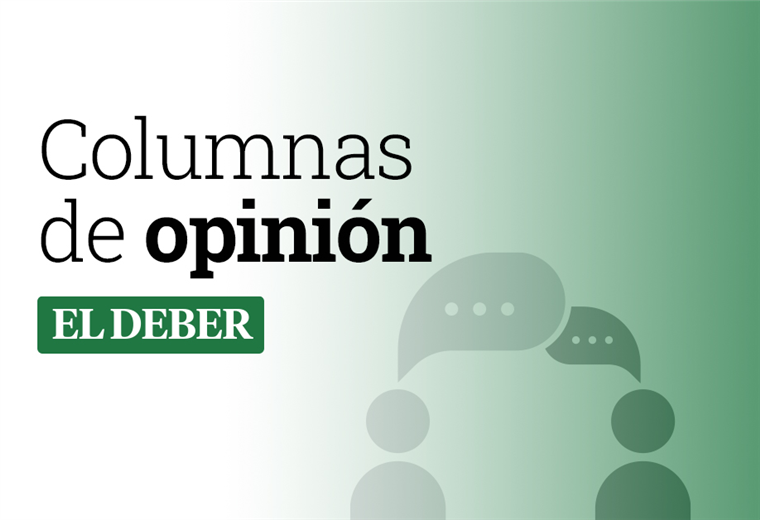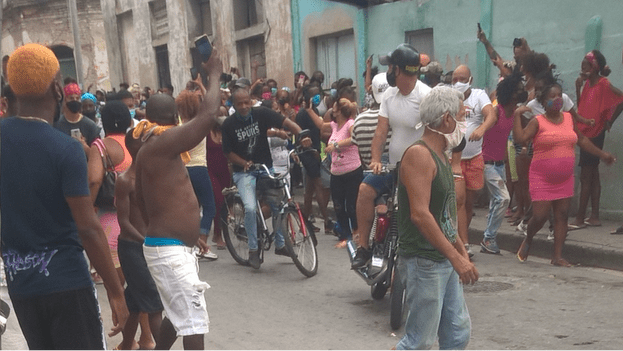September 2, 2024, 4:01 AM
September 2, 2024, 4:01 AM
Claudia Vaca |PHILOLOGIST AND WRITER
A few months ago, for work reasons, I was immersed in reading statistical and descriptive reports related to security in the digital world and the violation of the educational, cultural and fundamental rights of children, adolescents, women and indigenous and rural populations in various parts of the world. In this context, we used an interpretation system based on cyberpragmatics, discourse analysis and virtual ethnography, which I had worked with before, in what was my doctoral thesis and other consultancies. This interdisciplinary philological approach allowed us to process numerical and linguistic data, providing them with a corpus that facilitates the reconfiguration of possible solutions to the current crisis in terms of citizen security, identities in transit, fragility of democracies, among others.
All these realities share a common element: they are mediated by digital culture and there is a lack of citizen reflection on this reality. It is not necessary to have WhatsApp, Telegram, etc. to be immersed in this digital culture; it is enough to have an email or a phone number to be one click away from being a victim of cybercrime or kidnapping.
In this sense, and to provide resources for self-reflection on our life in this digital culture, typical of the 21st century, I would like to highlight the book “Virtual Ethnography” by Christine Hine, which invites us to review a series of transformations of identities in digital environments and the changes in communication behavior, patterns of spoken, written or gestural words, proxemic aspects, etc. that arise with technological mediation. This work is relevant for every citizen who seeks tools to understand and navigate the current world with greater caution and an attitude of self-observation of their practices on the Internet.
Within the humanities, and specifically in philology, the debate on cyberpragmatics, discourse analysis and communicative interactions mediated by codes of global digital culture, is booming, many philologists are required to analyze and process data that AI manages to articulate and configure, but the ethical, hermeneutic and interpretive subjectivity level between different frameworks and cultural singularities of each corner of the world, that level is not yet available to AI because it is not fully fed with content, therefore, to dive in, they need professionals from the Social Sciences, humanities, especially language and literature, philosophy and politics.
This debate addresses how these realities impact our communication, citizen security, the quality of democracies and aspects associated with authoritarianism, electoral fraud, the manipulation of census data, kidnappings, cases of pedophilia and statutory rape. Although these issues are also reflected in literature, reality often surpasses fiction.
Through the analysis of newsgroup discourses, Christine Hine examines the management of identity and authenticity online, highlighting the search for facticity and legitimacy that users try to project in their interactions, including silences and apparent absences that are also identified. The author approaches online reality from the perspective of a participant researcher, proposing an ethnography adapted to the particularities of the Internet. With a well-founded skepticism, she presents tools and evidence for an in-depth analysis of the Internet as a social phenomenon constructed and given meaning by its users. She focuses on how users conceive and use new technologies, manage authenticity and legitimacy, and navigate the boundaries between offline and online. The Internet is described both as a culture and a cultural artifact, confronting the ethnographic perspective with other models of language analysis, such as cyberpragmatics (Yus, 2014), critical literacy and identities (Cassany, 2023), discourse analysis (Van Dijk, 2022). Stresses the importance of experience and participation in these studies.
She explores the methodological option of “virtual ethnography” in disciplines such as anthropology, philology, history, politics and education; she redefines concepts such as space, time and linguistic interaction in the online reality, proposing a new object of study characterized by intercultural flows and connections instead of fixed locations. To illustrate her approach, she analyzes the case of Louise Woodward, an English nanny accused of murder in Boston. This case generated multiple weblogs and newsgroups that Hine explores as an active participant, demonstrating how to conduct ethnographic studies on the web and integrate global criteria from local realities. She examines how the uses, intentions and meanings assigned by users to each online space can influence judicial decision-making. In this way, she delves into the perception of technology and the polysemy of its use, describing this from a perspective similar to Lotman’s semiosphere (2000). It concludes that notions such as space and time, although they acquire new dimensions online, remain deeply rooted in “virtual” life, influencing the reconfiguration of identities and political and legal decision-making processes.
It is important to remember that the rate of child trafficking and pedophilia in Latin America is one of the highest in the world, and the number of disappearances is directly related to these unconscious and irresponsible clicks. This reflects how the “virtual” has been inserted like a chip in everyday reality, even in countries with low connectivity, which paradoxically are the most exposed due to the lack of digital literacy and reading comprehension. Critical literacy is urgently needed in the general population.
Criminal codes in Bolivia need to update their prevention and action frameworks in relation to digital crime, kidnapping, rape, and other crimes. Likewise, the protection codes for children and adolescents require revisions, with an interdisciplinary approach, not only from lawyers, but above all from cybersecurity experts, social workers, psychologists, doctors, philologists, and sociologists. Today’s world is more dangerous than many Greek myths of violence and terror, urban legends, and oral narratives from various peoples, which were created to warn children about dangers, are no longer sufficient.
Today, it is crucial to renew institutional frameworks on digital crime and human rights in order to have the resources to act and protect lives. To foster a necessary debate on communication, education and rights, I recommend other key readings. For example, the master in library science and documentation Yolanda Martin, in her book “Sources of information for the study of Criminology; Search, recovery and management of digital resources”, offers a wealth of data to delve into these topics. Similarly, Susan W. Brenner, an expert on the intersection of criminal law and cybersecurity, has published widely on cybercrime, with her work “Cybercrime: Criminal Threats from Cyberspace” being an indispensable reference for us as citizens of the 21st century.


















